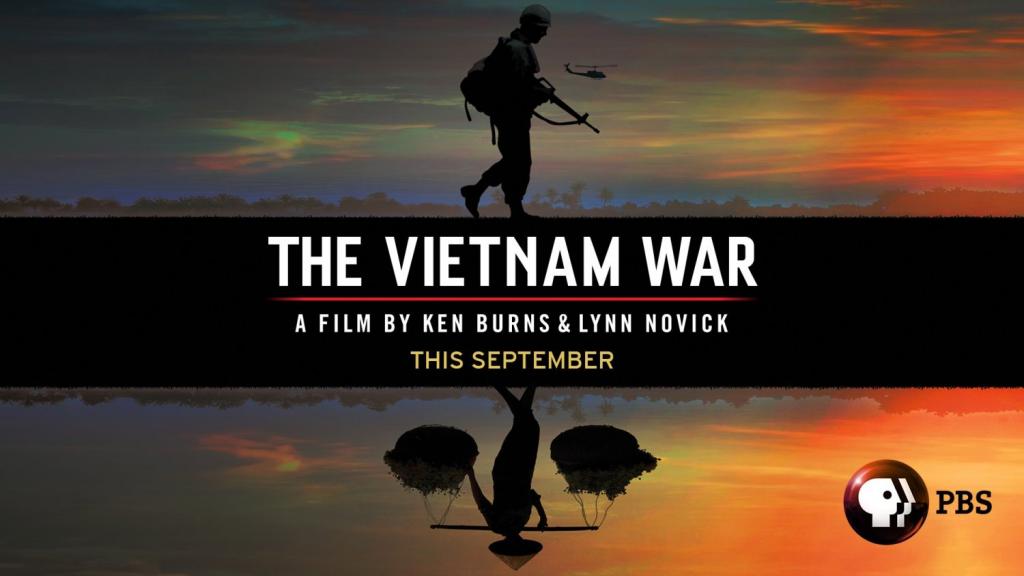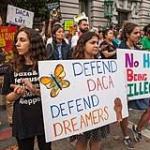How Do You Decide To Obey, and Whom?
I thought I wouldn’t watch Ken Burns and Lynn Novick’s series on The Vietnam War. I lived through it. My college and graduate school years are indelibly marked by it. I made annual pilgrimages to DC or to NYC, to join large protest marches. We rode on buses, marched for hours, then rode back, tired, numb, badly in need of a shower.
Which was nothing, it turned out, compared to what US soldiers were going through. And that was nowhere near what the North Vietnamese were enduring.
Prompted, perhaps by the Spirit, I disobeyed my own decision not to watch, and watched just the first one. And I was profoundly moved, by all that I never knew, by what I did know, and by the powerful feelings locked inside me.
The remembered horrors are made more real by the careful detailing of the history of mistakes, bad ones, the US made, in translating information, in accepting corrupt puppet officials’ lies, in understanding what the Vietnamese really wanted, in thinking this war was winnable, if you just poured on more money, more bombs, and more men.
And the worst mistake of all was believing the US could teach the Vietnamese how to be human and how to be free. We were so sure we were superior to them, in culture and in wisdom.
There is another week of this long series yet to come. And I will watch it.
And in this week the gospel reading is Jesus’ confrontation with the temple priests, who demand to know by what authority he teaches what he teaches.
When he asks them whether John’s baptism was from God (was divine) or was his authority of human origin, they tried to escape the question by saying they didn’t know. So Jesus told them, and the people around him, a parable, in which a father of two sons asks them both to work in the vineyard. And one says No, he won’t, but later he goes and does the work. And the other says Yes, he will, but he doesn’t. And Jesus asks, Which one did the will of his father? And they answer, the first.
And then Jesus stuns everyone by saying to the priests, prostitutes and tax collectors will enter heaven before you do, for you couldn’t recognize John’s righteousness, but they could, right away. And even after you saw it, you wouldn’t change your mind.
So: who worked in the vineyard, serving their country: the war protestors, who wouldn’t serve in the military, but did serve as Conscientious Objectors, in medic corps, in stateside hospitals, in other jobs assigned them, or enlisted men, who went to Vietnam, and overwhelmed by what they were asked to do, which felt wrong to them, entered into the dehumanization of the enemy that was necessary to kill and kill and kill, and, if they did not end up maimed may have been broken in spirit by the killing, or the drugs they used to cope, or tropical diseases, or side effects of Agent Orange?
And the only answer to this question, really, is that the situation was such a ghastly tragedy, there is no simply good side to be on. And yet, we all had to choose to do something.
The series shows how late in the game all these protests were, because the beginning of all this was much longer ago than we knew, starting under Truman, and continuing under Eisenhower, Kennedy, Johnson, and Nixon.
The protests really were self-serving, when the war began eating up college students. Before then, who was paying much attention?
Jesus’ tragedy will go forward, and the temple priests won’t take sides, and that will be part of the problem. The peace he leaves us with will include horrors for which there is really no excuse. And that is the peace that finally comes to Vietnam.
All the politicians over all the years, in both the US and South Vietnam, become Pilate and Herod, and this legacy will last forever. The only admirable politician here is Ho Chi Minh, whose image still remains on the gas tank in the Dorchester section of Boston, where Sister Corita Kent painted it.
Pete Seeger, the folksinger who wrote the psalms that belong to this war, called him Teacher Uncle Ho in one of them. And we all sang it. But I never knew till this series that his birth name was Nguyễn Sinh Cung, or that Ho Chi Minh means Venerable Teacher, or that he was born in 1890, and spent his entire life working for freedom for Vietnam. I never knew that he tried for decades to get western countries to understand and intervene to free Vietnam. That he sent long, handwritten letters, in English, which he learned while doing laboring work in Europe, to President Roosevelt, which were never even shown to the President. That he admired the US and hoped we would help, and turned last to the USSR.
There is an important legacy for America from this war, in that we citizens learned how to be activists, and learned not to believe simple answers from government, or to believe the government was telling us the truth, and we made it known that sending the young to war to die would have a high cost for elected officials.
And there is a more important legacy, the history of our dreadful, sinful behavior, our racist behavior, our wasteful behavior (wasteful of American lives and Vietnamese lives) and our bullying behavior, and our simply stupid behavior.
And there is a luminous legacy, of the way American servicemen were devoted to one another, saved one another, sacrificed for one another, and were loyal despite their terror and dislike for the war.
And then there is the legacy of the Wall, where all the more than 50,000 names are engraved and are still being engraved, as the wounded die.
It is in all this that we can learn the meaning of public sinners going to heaven before us. Because the prostitutes and tax collectors knew John’s righteousness. They knew it because they knew their own sinfulness. But the priests thought they were better than everyone else and they thought God liked them better. And the US thought that, too.
A lot of Americans knew our lack of righteousness in that war. But a lot, especially those in power, refused to admit it because they believed we were inherently superior to the Vietnamese, and kept sending young men to their deaths, and kept inflicting death on Vietnamese men and women, soldiers and civilians, as a matter of stubborn pride.
So far the part that stuns me the most is Secretary of Defense McNamara begging Johnson to stop the war, because he knew it was unwinnable, and because he had come to understand what a terrible waste it was. But no one in the White House or the Pentagon would listen to him, and eventually he was pushed out of his position.
So there is a lot in this parable, about what it means to serve, in truth, and in love, and in honesty. And there is a lot in the Vietnam War series about all who were lying all along.
__________________________________________________________________________________
Image: The Vietnam War by Ken Burns and Lynn Novik. NeoGAF image.















